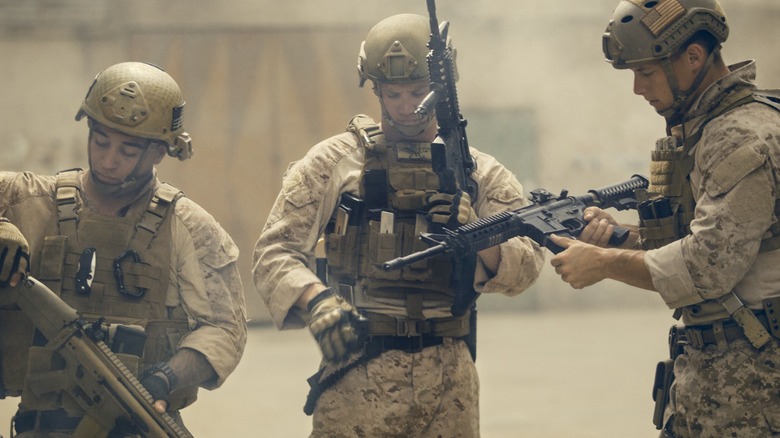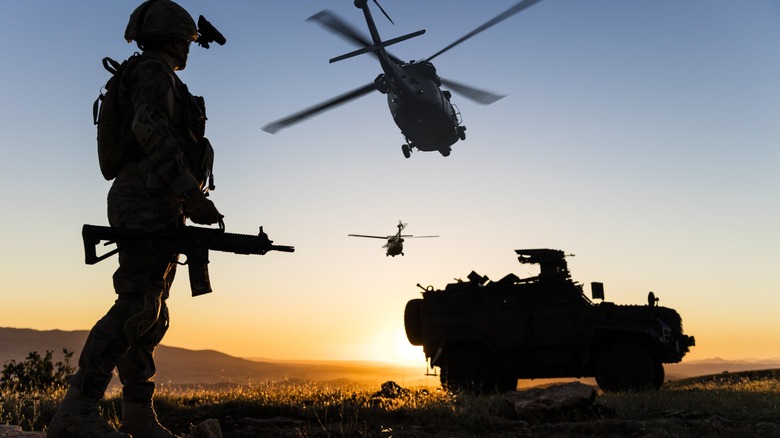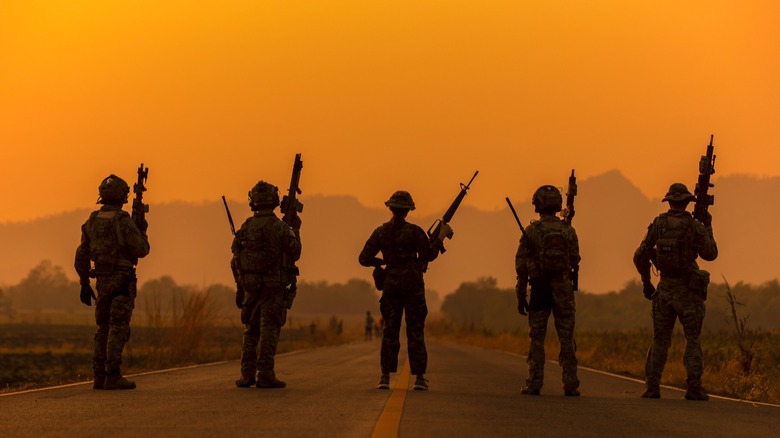Why Military Logistics Is Just As Important As Firepower When It Comes To Winning Wars
When you think of war, you probably imagine tanks rolling, jets soaring, and soldiers charging. That's the action-packed image Hollywood sells. The plot twist most people miss, though, is that none of that heavy metal moves an inch without logistics. The age-old belief is that wars are won and lost on the battlefield. But closer inspection will show that a lot goes on before, during, and after the soldiers take position.
Firepower might win battles, but logistics wins wars. Even as technology is transforming the military, logistics is not left out. It is the unsung hero of every battle. Imagine trying to fight a war with no fuel, bullets, or spare parts. Victory will be unlikely. You can have the biggest guns and smartest missiles. But if your troops are hungry, tanks out of gas, or your radios are down, you're not going anywhere fast. Logistics is what keeps the military running quietly, efficiently, and relentlessly. Here's how and why it is just as important as firepower when it comes to winning wars.
Firepower grabs attention, but logistics sustains the fight
Modern warfare is a logistics-driven operation. The U.S. military's logistics involves moving, supplying, and maintaining everything from fuel to food. Especially across vast distances. This effort is massive, as supporting just one brigade combat team overseas can require up to 2,000 tons of supplies each day. That's the real work behind the firepower. Without it, even the best weapons sit idle.
Logistics is more than just support on one side. It's also a strategy on the other side, aimed at causing mission failures and forcing tactical retreats. Logistics attacks create fuel shortages, slow resupply times, and mismanaged supply chains. You won't want to find out how long a military helicopter can stay in the air without refuelling the hard way. When resupply ships can't deliver or fuel, convoys stall, and the fight stops. This is the case regardless of how advanced the weapons are. History backs this up. In Desert Storm, logistics enabled a rapid, overwhelming U.S. assault. But in Afghanistan and Iraq, long supply chains exposed troops to ambushes and delays. This slowed military operations and strained their resources.
How logistics decides who wins and loses
The ability to move, supply, and sustain a force is what decides who holds the ground and who walks away. History, strategy, and today's military operations all point to one truth: Logistics is the difference between lasting strength and early collapse. For instance, some of the most intense dogfights in aerial combat history were sustained through logistical excellence. Something that also signals the importance of logistics is that it is often a primary target for attackers.
Many adversaries know they can't match U.S. combat strength directly. So, they aim to break its logistical backbone. They do this through cyberattacks, port disruptions, and supply chain interference. These aren't mere nuisances. Instead, they are strategies designed to cripple operational momentum. In certain war zones, U.S. forces have dealt with long, exposed supply routes that required constant protection. Convoy ambushes and IEDs aren't just tactical threats. They slow the entire war effort, proving that victory in war is about endurance. The side that can maintain operations under pressure is the one that prevails.


